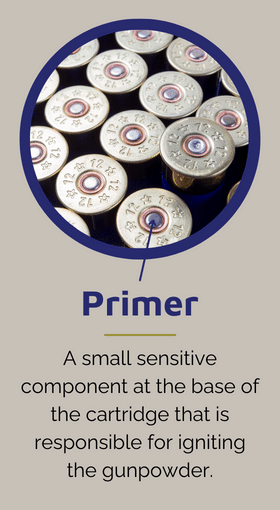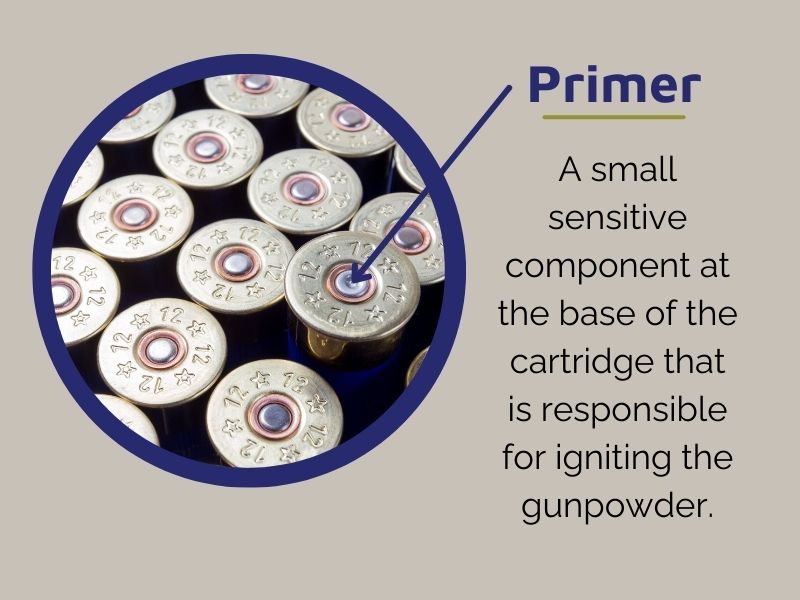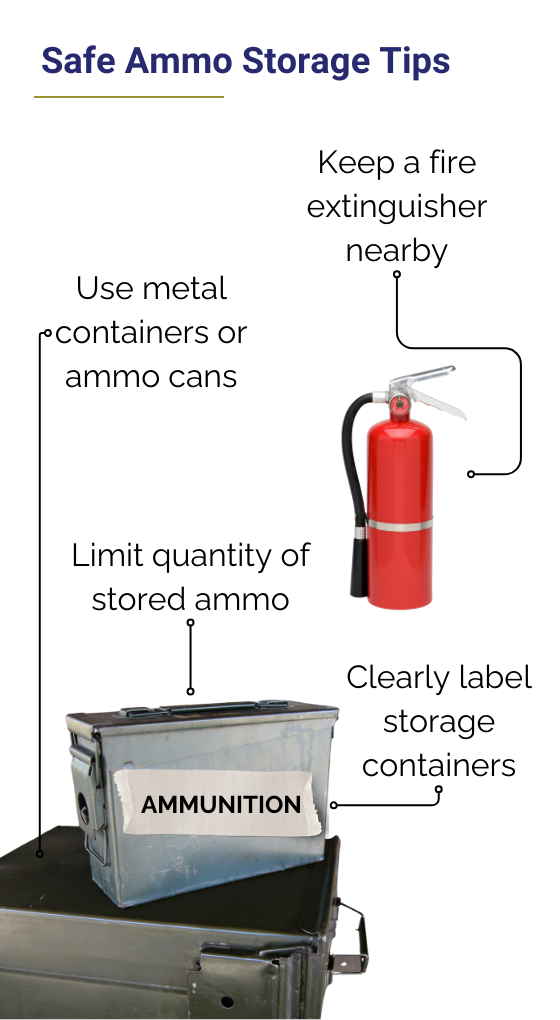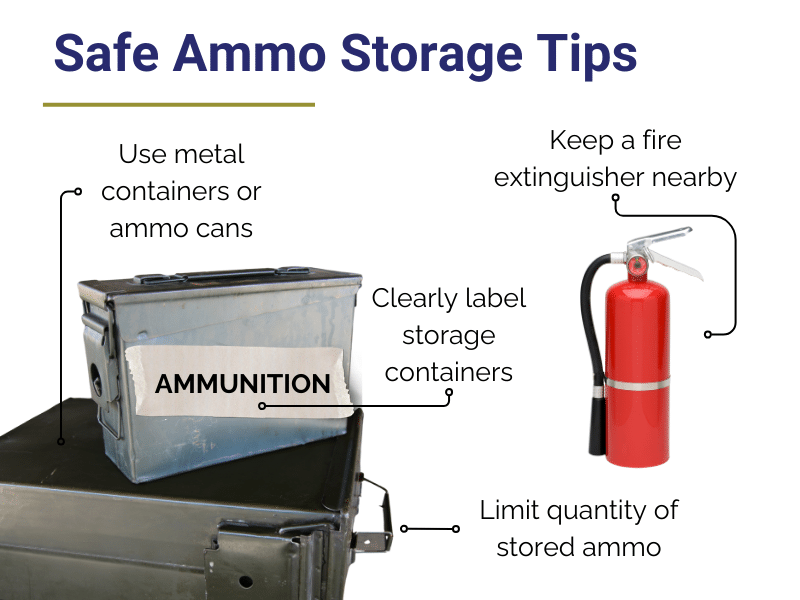Finding old ammunition in your home or inheriting it from a loved one can often be an overwhelming experience, especially if you're unfamiliar with the world of ammo. You might be questioning, "Are old bullets dangerous?" Particularly if you have a family or children in the house, safety is crucial. Whether you plan to keep or discard the ammo, understanding its nature and potential risks can help alleviate your concerns. This article aims to address these concerns, offering clear and practical insights to ensure your safety and peace of mind.
are old bullets dangerous without a gun?
Old bullets, even without a gun, can pose risks. Their unpredictable nature and potential instability can lead to concerning scenarios. While the absence of a firearm reduces the immediate threat, the potential for accidents still exists, especially when improperly handled or stored.
Can Old Ammo Explode on its own?
Old ammunition, especially if improperly stored or degraded, can become unstable and potentially explode under certain conditions, like exposure to intense heat.
For those unfamiliar with firearms, are old bullets dangerous to inspect?
For those unfamiliar with firearms, inspecting old bullets can indeed be dangerous. Old ammunition can be unpredictable, especially if it has been stored in less than ideal conditions. Deterioration, corrosion, or other damages can make the bullet unstable. Additionally, without proper knowledge, there's a risk of mishandling which can lead to accidental discharge if the bullet is part of a live cartridge. It's always recommended to approach old ammunition with caution and seek guidance from someone experienced in firearm safety.
Can a Bullet Go Off in Your Pocket?
Bullets are designed with safety in mind. The chance of a bullet igniting in your pocket is exceedingly low. This is because ammunition functions through the precise action of a gun's firing pin striking the bullet's primer with a specific force. The primer, a small sensitive component at the base of the cartridge, requires this sharp and focused impact to ignite the gunpowder within.
Info Box
In everyday scenarios, like having a bullet in your pocket, the necessary conditions for this ignition are absent. Even accidental bumps or pressure from other objects in your pocket won't match the specialized strike of a firearm's firing pin. Thus, it's highly improbable for ammunition to go off outside of its intended use in a firearm.
Are old bullets dangerous to Store at home?
The primary concerns include unauthorized access to ammunition and the chance of detonation during events like fires. This is why proper storage of ammunition is essential, especially when children or unauthorized individuals are around.
When it comes to children or pets, are old bullets dangerous if accidentally ingested?
Absolutely, old bullets can be very dangerous if ingested by children or pets. Not only is there a risk of choking or internal injury due to the bullet's shape and hardness, but many bullets, especially older ones, are made of lead. If ingested, lead can be toxic and lead to serious health complications, including lead poisoning. If you suspect a child or pet has swallowed a bullet, seek medical or veterinary attention immediately.
What Happens to Ammo in a Fire?
If ammunition is stored improperly and is exposed to extreme heat, like in a house fire, the gunpowder inside can ignite. When this occurs, the ammo might detonate. However, it won't have the same focused force as when fired from a gun. Instead, the casing will likely burst, releasing the bullet and fragments at a lower velocity. Still, it is a safety concern for firefighters or anyone nearby, especially with older rounds that might be more unstable.
How to Store Ammo in Case of a Fire?
To ensure safety, consider these steps:
- Fireproof Containers: Use fireproof safes or containers to store your ammunition. These are designed to withstand high temperatures and prevent the ignition of gunpowder. Metal containers or ammo cans can offer an additional layer of protection against heat and fire. These containers are less likely to catch fire and can help contain any ignition that might occur.
- Cool, Dry Storage: Store your ammunition in a cool, dry area away from direct sunlight and heat sources. High temperatures can increase the risk of accidental ignition. Ensure proper ventilation in the storage area to prevent the buildup of heat and gases. Keep your ammunition stored separately from flammable materials, chemicals, or anything that could accelerate a fire.
- Limit Quantity: Don't store excessive amounts of ammunition in one location. Keep quantities manageable to reduce the potential impact in case of a fire.
- Nearby Fire Extinguisher: Have a fire extinguisher nearby and know how to use it. This can help you control small fires before they escalate.
- Regular Inspections: Periodically inspect your storage area for any signs of damage, tampering, leaks, or deterioration. Replace damaged containers promptly.
- Label Clearly: Clearly label your storage containers as containing ammunition, so firefighters are aware in case of an emergency. It's also important to inform emergency responders that you are storing ammunition.
Is 30-Year Old Ammo Still Good?
Ammunition can last for decades if stored under the right conditions, but the question often arises: is 30-year-old ammo still reliable? The age of the ammunition can affect its performance, especially if it hasn't been stored properly. While some old ammo might still function correctly, factors like moisture, temperature fluctuations, and time can affect its reliability and safety.
Given their unpredictable nature, in what ways are old bullets dangerous?
Over time, ammunition can degrade, leading to a higher chance of misfires or erratic performance when fired. Furthermore, old ammunition might corrode, which can lead to chemical exposure or potential explosions if subjected to heat or impact.
Is It Safe to Shoot Old Ammo?
Utilizing old ammunition introduces a multitude of risks. Over time, elements like the gunpowder, primer, and casing can degrade, potentially resulting in unreliable or unsafe results when fired. When using aged ammo, shooters might encounter issues such as misfires, hangfires, or the particularly perilous squib loads.
Are old bullets dangerous when they show visible signs of corrosion?
Yes, old bullets that show visible signs of corrosion can be particularly dangerous. Corrosion indicates that the bullet or cartridge has been exposed to moisture or unfavorable conditions, which can compromise the integrity of the ammunition. This can lead to unpredictable behavior if an attempt is made to fire it. Additionally, corroded ammunition has an increased risk of misfire, hangfire, or even a catastrophic failure of the firearm when used. It's advisable to avoid using or handling corroded ammunition and to dispose of it safely, following local regulations.
Conclusion
Ammo safety, especially concerning older bullets, is crucial for those unfamiliar with firearms. Whether you've recently acquired ammunition or have concerns about its age, being informed and cautious is paramount. Seek expert advice, like from Ammo Guy, when in doubt. Ensure your home and family are safe by understanding and addressing the potential dangers of old bullets.





